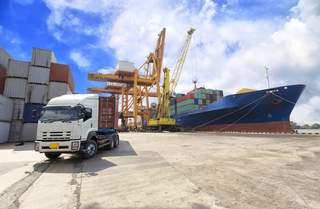
Investment Guarantees Promote Foreign Business in Emerging and Developing Countries
Investment guarantees of the German government are of great importance for German companies operating in emerging and developing countries. This applies, in particular, to small and medium-sized enterprises, which find it difficult to bear political risks. Investment guarantees offer protection against political risks such as nationalisation, expropriation, breach of promises, war, revolution, insurrection, and terrorist acts. However, they are not a free ride for investors. Economic risks are not covered; they are borne solely by the investor.
Investment guarantees are also important for the destination countries. They make an important contribution to achieving the United Nations’ Sustainable Development Goals (SDGs). According to the United Nations Conference on Trade and Development (UNCTAD, 2019), the SDGs will only be achieved if private investors fill an annual gap of 2.5 trillion U.S. dollars.
In 2018, the German government granted guarantees amounting to 1.2 billion euros for a total of 51 projects in 17 countries. 37 per cent of the approved applications came from small and medium-sized enterprises. As in the previous year, the regional focus of the award was on projects in Asia, especially in China. The share of projects in Africa has increased considerably to 11 per cent compared to 2017 (0.2 per cent). At 33.8 billion euros at the end of 2018, the total volume of current guarantees remained at a high level.
Scope and Conditions of Coverage
According to the Federal Ministry of Economic Affairs and Energy (BMWi), all forms of foreign direct investment (FDI) are covered, such as participation in the establishment of companies as well as the acquisition of shares, capital resources and the acquisition of concessions in the mining of raw materials. The applying company must have its headquarters in Germany. Investment guarantees are only granted if the investments can be expected to have positive effects both at the investment location and in Germany. For example, the guarantees granted in 2018 created or safeguarded around 11,500 jobs in the destination countries of the investments. In addition, the investments must be justifiable in terms of risk. This means that a certain degree of legal certainty must be guaranteed in the investment country. The existence of a bilateral investment treaty (BIT) between Germany and the destination country of the investment is a prerequisite for the granting of an investment guarantee by the Federal Government.
For investments of more than five million euros, a one-time application fee of at least 0.05 percent (maximum 10,000 euros) is due initially. The fee is waived for investments of less than five million euros. The maximum duration of the guarantee is 15 years and can be extended by five years before it expires. During the duration of the guarantee, annual fees of 0.5 percent of the investment sum are due. The deductible in the event of a claim is five percent for the investor.
The BMWi is responsible for approving an application. It takes the decision in accordance with the Federal Ministry of Finance (BMF), the Federal Foreign Office (AA), and the Federal Ministry for Economic Cooperation and Development (BMZ). The auditing company PricewaterhouseCoopers AG (PWC) is responsible for preparing the approval procedure on behalf of the BMWi. The committee advises investors and makes recommendations for the granting of guarantees.
The Future of Investment Guarantees
To ensure that investment guarantees remain an attractive instrument for German enterprises, the framework conditions must be adapted to global developments. For example, they need to reflect that more and more countries are terminating BITs. They also need to take into account the modernization of BITs. These trends should not deteriorate the chances for companies to be granted an investment guarantee.



